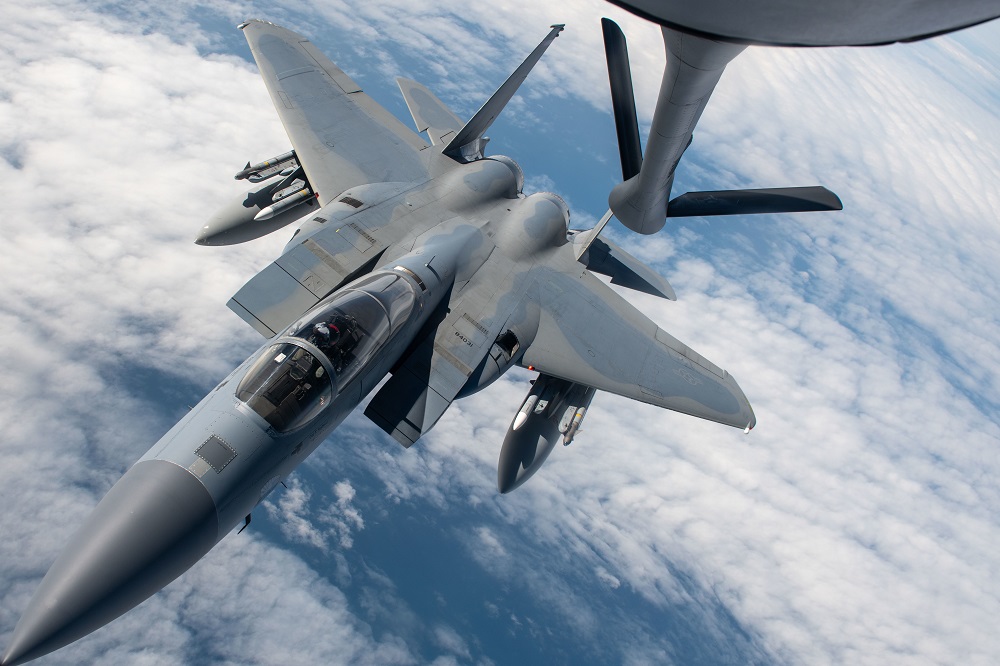
Sea state
The Australian government has inked a $1.5 billion deal to acquire a fourth MQ-4C Triton drone and upgrade its fleet of P-8A Poseidon maritime patrol aircraft. A maintenance workforce will be established at RAAF Base Tindal southeast of Darwin and RAAF Base Edinburgh north of Adelaide to support the introduction of the MQ-4Cs, with the first aircraft due for delivery in 2024. The upgrades to the P-8As will begin in 2026 and will include improved acoustic sensors and datalinks and the ability to fire AGM-158C long-range anti-ship missiles. The decision is designed to enhance military operations from Australia’s northern bases, a priority identified by the 2023 defence strategic review.
The Pakistan Navy has commissioned the first of four PN MILGEM-class corvettes, PNS Babur, at Istanbul Naval Shipyard. The delivery of the vessels is part of a US$1.5 billion contract signed in July 2018 with ASFAT, a Turkish state-owned defence contractor. The Babur will be armed with the MBDA Albatros NG air-defence system and Harbah anti-ship and land-attack missiles. The three remaining corvettes—PNS Khaibar, PNS Badr and PNS Tariq—are undergoing sea trials in Turkey and Pakistan.
Flight path
The US Air Force will create three deployable, integrated units known as air taskforces to enable and sustain its ‘agile combat employment’ doctrine across the spectrum of conflict. In a press release, Air Force Secretary Frank Kendall described the initiative as ‘part of an ongoing effort to build high-end readiness for the future’. Two air taskforces will be assigned to US Central Command and one to US Indo-Pacific Command. They will likely include a command element, along with expeditionary air base squadron and mission generation force elements.
US and Canadian forces recently conducted Operation Noble Defender, a month-long series of exercises around some of the most remote islands in Alaska. The exercise trained combined operations through the air-focused Operation Polar Arrow and the integration-focused Operation Polar Dagger. In Polar Arrow, F-16 Fighting Falcons and CF-18 Hornets operated alongside an E-3 Sentry airborne warning and control system, supported by a KC-135 tanker aircraft. Polar Dagger combined air, ground, naval and special forces to test new capabilities for defending critical infrastructure with integrated deterrence and layered defence.
Rapid fire
Australian Army soldiers from the 3rd Battalion, Royal Australian Regiment have conducted a combined-arms assault exercise with the Papua New Guinea Defence Force as part of Exercise Wantok Warrior. Hosted at Moem Barracks in PNG, the series of annual training activities aims to build on the longstanding relationship between the two countries and provides continuity of training for infantry who had worked closely together in Exercise Talisman Sabre.
Lebanon’s army has said that it fired tear gas at Israeli forces over the border last weekend in response to smoke bombs fired at its troops. The Israeli military responded by saying that Lebanon had started the violence. The Lebanon–Israel border has been relatively calm since Lebanese armed group Hezbollah and Israel fought a 34-day war in 2006 that left more than 1,200 people dead. However, tensions have escalated in recent months.
Final frontier
A Firefly Alpha rocket has been successfully launched as part of the US Space Force’s second operational tactically responsive space demonstration. Known as the Victus Nox mission, it aimed to showcase the rapid acquisition, integration and launch capabilities of a satellite constructed by Boeing subsidiary Millennium Space Systems. The launch took place at the Vandenberg Space Force Base in California. Lieutenant General Michael Guetlein, head of Space Systems Command, said that this achievement signified a ‘culture shift’ in his nation’s ability to respond swiftly to aggression.
China’s People’s Liberation Army has inaugurated Base 37, a new strategic facility dedicated to the Strategic Support Force and aimed at enhancing China’s space-awareness capabilities. It is tasked with improving missile early warning systems and the identification, tracking and analysis of foreign space objects. Base 37 is spread across several provinces and is expected to be used for integrating data from satellites with a primary focus on refining the accuracy of China’s space object catalogue and bolstering collision early warning systems.
Wired watchtower
FBI Director Chris Wray has asserted that China’s cyberespionage program is much larger than the combined efforts of its major competitors. Wray said that even if every FBI cyber agent and intelligence analyst were dedicated solely to countering Chinese cyber threats, Chinese hackers would still outnumber them by ‘at least 50 to 1’. Beijing’s embassy in Washington has yet to respond to requests for comment, maintaining China’s consistent denial of using hackers for espionage against the US.
In a speech to the UN General Assembly, the UK’s deputy prime minister, Oliver Dowden, positioned his country as a leader in shaping global strategies for the advancement of artificial intelligence. Dowden said Britain has a strong foundation of infrastructure that can be used to ensure AI’s success and safety. He referred to the ongoing efforts of his government’s AI taskforce, which is dedicated to evaluating vulnerabilities in AI systems, and mentioned the potential of sharing this expertise on a global scale. The speech foreshadowed the AI safety summit to be hosted by UK Prime Minister Rishi Sunak in November.

